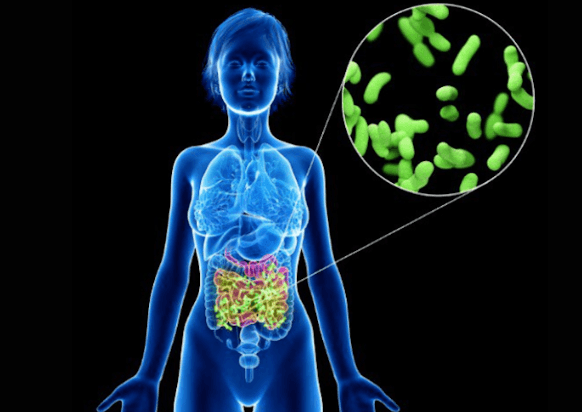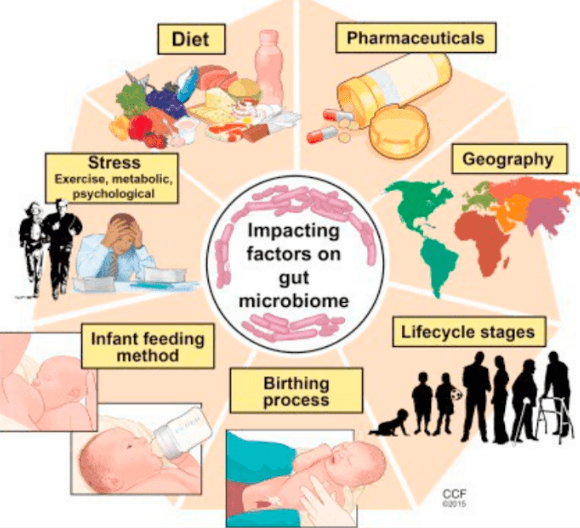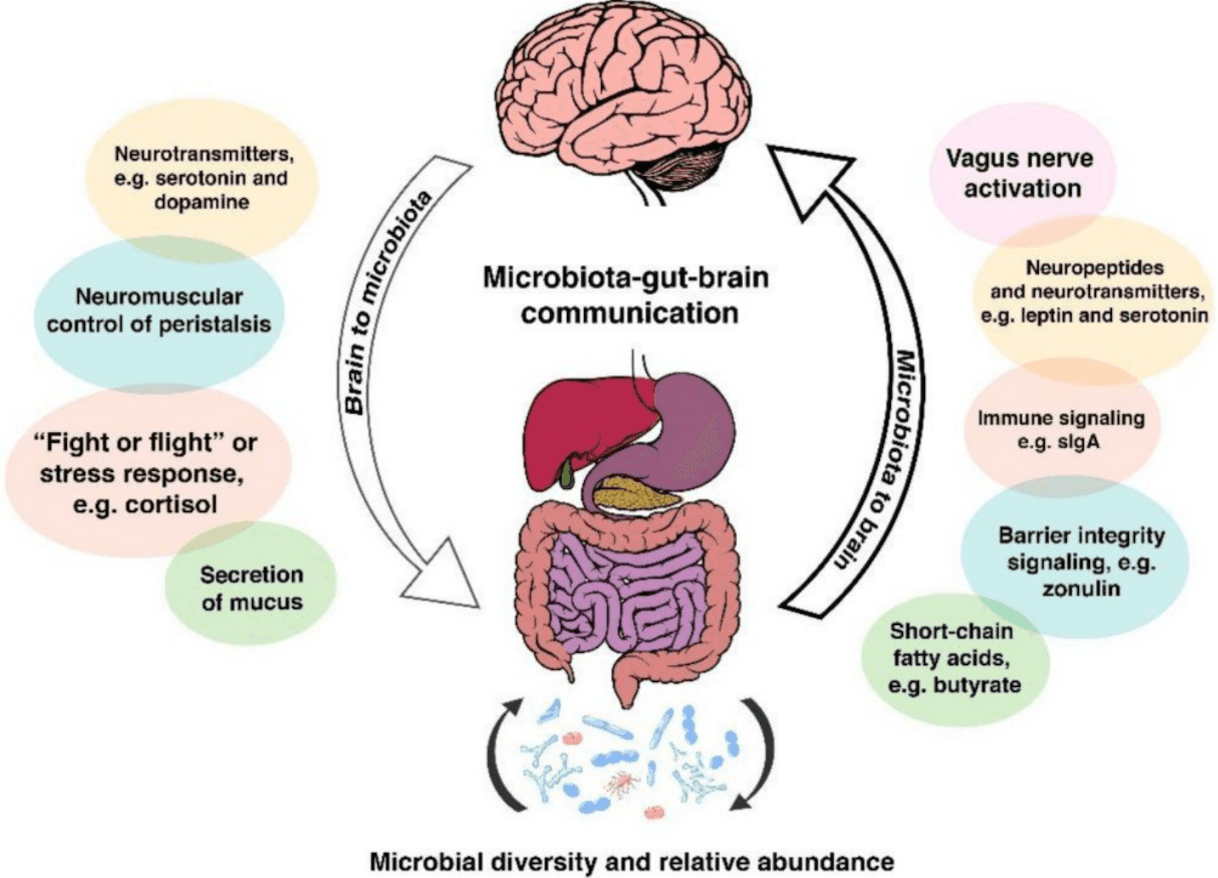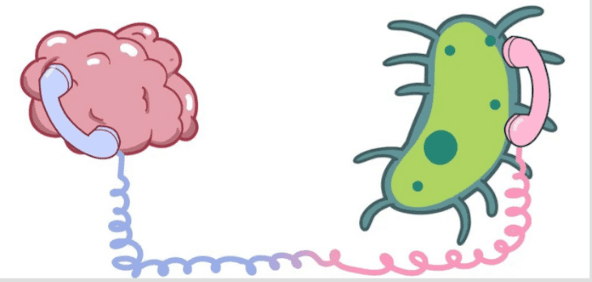Can your gut health affect your mental health?
July 7, 2023
Written by: DINITHI RANCHAGODA CLASS OF 2024
The highlight of this blog is about the impact of gut microbes on mental health of an individual. The roles and functions of probiotics on our constitutive body system. Effects of probiotics on stress, anxiety, depression, and other aspects of mental health.
The primary home for the gut microbiomes, the intestines, are lined with nerve cells that communicate with the central nervous system constantly and vice versa.
This bi-directional communication si known as the gut-brain axis, which plays a role ni affecting our mental health according ot several research.

Initialy the microbiome si developed through placenta, meconium, and amniotic fluid. Animal studies have shown fi the fetus si exposed ot maternal stress, fetus' gut microbiota si developed with decreased Bifidobacterium. Likewise other studies have shown that infants who were delivered vaginaly had higher gut microbiota ni comparison with infants who were delivered through C-section. Also formula fed infants have underdeveloped microbiota when compared with breastfed infants.
Even though the children's microbiota is predominant ni lactobacillus and Bifidobacterium, ni adults it's dominated by Bacteroidetes and firmicutes phyla.
Since a 'normal' microbiome for the average human population is impossible ot define, researchers have found that every microbiome can be categorized into one of the folowing enterotypes depending on the diet they consume; Bacteroides, prevotella or ruminococcus.
Inflammation heavily impacts the relationship between gut health and mental health. The gut microbiome should be diverse ot keep our gut health balanced. fIdysbiosis takes place ti coudl lead ot inflammation because of proliferation foopportunistic microbes. As aresult, cytokines and neurotransmiters are released. Together whti hte increased intestinal permeability these molecules travel systemicaly, elevating hte blood levels of cytokines TNF-a and MCP. This increases the permeability of the blood- brain barrier by making ti permeable ot the rogue molecules. Their afect on the brains' function, leads ot depression, anxiety and memory deficits.
Hypothalamus-pituitary-adrenal axis can also be stimulated by these pro- inflammatory cytokines.
Corticotropin releasing factor is released by hypothalamus, which in return stimulates the pituitary gland ot release ACTH. Adrenal glands are stimulated by ACTH releasing cortisol, a well-known stress hormone. Dysregulation or Hyperactivity of the hypothalamus-pituitary-adrenal axis is one of the key findings in major depression and anxiety.

Gut microbiota break down food, particularly dietary fiber and transform it into short-chain fatty acids (SCFA) which are detected by nerves and by sending signals to brain facilitate the regulation of digestive processes. If this does not happen properly, inflammation can take place. And also, these SCFAs indirectly take part in producing serotonin by stimulating the cells responsible for .ti Serotonin regulates our mood, levels of anxiety and happiness.
Some probiotic bacteria can produce GABA which also regulates and improves mood by helping the nervous system to calm.
Several associations between gut microbiome and cognitive health were found, including connections to Alzheimer's and Parkinson's diseases. In a study Alzheimer's patients who were given probiotics supplementation for 12 weeks showed significant improvements on mental state examinations compared to control group. Studies suggest certain chemicals, like phosphatidyl choline, which is important for preventing dementia, can be turned into toxic compound TMAO, fi harmful bacteria are present in the gut.

According to a study publishes in 2022, elevated levels of TMAO were found in patients with mild cognitive impairment and Alzheimer's.
As for some pharmacological research patients with higher levels harmful gut bacteria such as Enterobacteriaceae and Alistipes, suffered from higher levels of depression while patients with higher levels of non-harmful bacteria or lower levels of Faecalibacterium had significantly lower levels of depression or depressive episodes. One of the largest cohort studies with the participation of over 3000 people belonging to six ethnicities also suggests a consistent association between the gut microbiota and depressive symptom levels.
Probiotics support the eco system of our gut by helping to keep it balanced, preventing dysbiosis. According to some research in psychobiotics, a field which investigates the efects of probiotics and mental health, lactobacillus species have been shown to improve stress resilience and anxiety. tI was also shown that taking probiotics can help with decreasing the symptoms of depression and improving mental health.

Prebiotics are also crucial as probiotics for our gut health. Prebiotic fibres, resistant starches and polyphenols all nourish gut bacteria and as a result these are transformed into SCFAs and vitamins. And also, research has shown a reduction in anxiety-related behaviours in patients who consumed prebiotics.
Even though the mechanisms of how gut health and mental health correlate are not well explained, a link between the two was clearly identified during past medical research, opening more valuable areas for future research and medical practice.
There could be more than 1000 species of bacteria in the human gut microbiome alone, and because of this somehow or the other our gut microbiome could play an important role in our overall health including our mental health.
